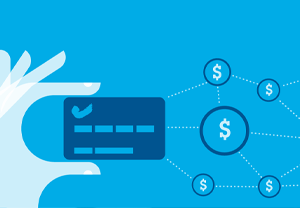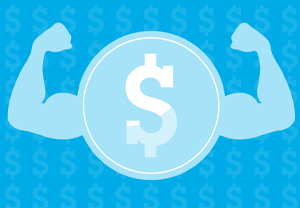In the central US, owning a car is really a necessity. Interest rates, rising insurance premiums, larger repair costs and a limited selection of vehicles have drastically increased the costs of ownership. We’ll cover a bit on each topic below.
Rising Rates
If you are thinking about buying a car and reading this post, you probably already know that vehicle prices and interest rates are higher than just a few years ago. This combination has a big impact on monthly payments. Below are a few tips to make sure the purchase fits your budget:
Before shopping, determine your budget. Knowing this your payment capacity upfront will help you when you get to the dealership. Pro-tip: once you figure out your payment capacity, use a loan payment calculator to determine the price of the vehicle you can afford. Negotiate on the price, not the payment.
Our thoughts on rates: We don’t see drastic changes up or down in the foreseeable future. Rates are near historic averages (we’re talking 20 years, not 20 months historic), so don’t count on big rate drops and slashing your payment. With higher rates, you pay less principal each month of your payment. This makes it more likely that you could have negative equity, inhibiting your ability to refinance or trade even if rates do drop. Put the payment in your comfort zone for the long-haul.
Don’t Forget the Extras
- Insurance
Insurance premiums are rising. This is due to higher repair costs and more expensive vehicles. Insurance company losses on totaled vehicles also play a part in premiums, so if you live in an area prone to hail or flooding, expect to pay more as damage is more likely. Check insurance premiums on the vehicle you are considering before signing the paperwork.
- Tax, Title, Registration
Taxes and registration fees can add quite a bit to the cost of a new or used car. Depending on the state in which you buy your car, you may not be able to roll these fees into your auto loan. When setting your budget and looking at vehicles, use your state’s tax and registration calculators to estimate how much you’ll owe and plan accordingly.
- Maintenance Fund
Stuff happens. It’s good to prepare so you are not stuck paying repair bills with a credit card or dipping too far into your emergency fund when, not if, you have a vehicle related expense. Even if you’re buying a vehicle with a great warranty, tires, maintenance items and insurance deductibles are not covered. We suggest setting aside a small amount each paycheck designated for repairs and maintenance. Even $25 a month can go a long way towards offsetting expenses.
- Fuel
Whether the car you end up buying runs on gas, diesel, or electricity, this will be one of your biggest recurring expenses after monthly payments and insurance premiums. Make sure to factor this expense into your monthly budget, especially if the vehicle you’re buying is less fuel efficient than the one it’s replacing.
Budget Friendly Buying
It’s easy to get excited by the latest tech features and luxury options. If your budget is tight, consider forgoing the frills or spend the extra money on a newer, reliable model than one with fancy options. More tech = more repairs as vehicles age. Also, dealers have a harder time moving vehicles with fewer options. You can negotiate a better price by choosing a vehicle without all the premium features.
New vs Used
There is no right answer for this one. Do your research and evaluate your budget. In the past, buyers could save thousands of dollars buying a low mileage, nearly new vehicle. This has changed with smaller inventories of vehicles. It’s best to shop for new and used vehicles then make the choice based upon what your budget allows. The good news: used vehicle prices are coming down!
Let your Budget be your Status Symbol
Everyone wants to impress friends and family with a fancy, new ride. Consider this: do you want to forgo fun events with these same friends and family, or not be able to spring for your children’s events and education expenses because you spent a little too much on a car? We didn’t think so. Consider the budget implications when you buy. Your future self will thank you!
Repair vs Replace
Experts agree that it is typically worth completing repairs versus replacing your vehicle until the repair cost nears the midpoint of the value of the vehicle. It’s not a hard and fast rule, especially if the vehicle is older and in need of constant repair. You’ll also want to factor in the amount owed on the vehicle or how close it is to being paid off. If you can make the repair and extend the life of the vehicle, it’s usually the better option. You’ll get substantially less trying to sell or trade a vehicle that needs a major repair. Routine maintenance will help limit the big-ticket repairs. One thing we know for certain: living without a car payment and stacking your savings account is a life altering experience!




